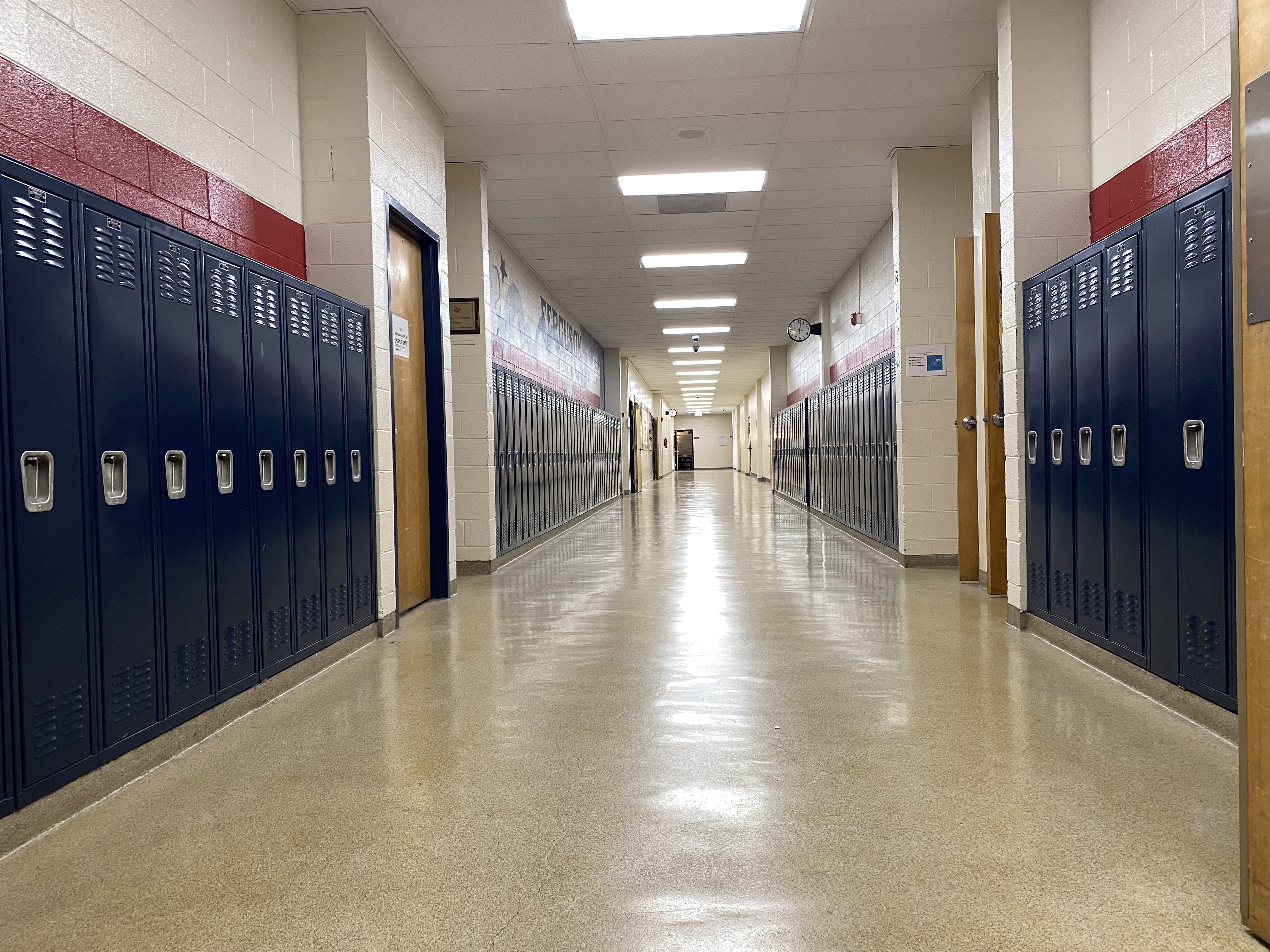Farragut is a suburban town in East Tennessee, with a population of over 22,500 that loves the small-town atmosphere and is deeply involved with its schools.
During the pandemic, a significant amount of economic and social activities at school and across the community were reduced or canceled, including group gatherings, school activities, sports games, and volunteering. Classes were shifted online, with mixed results.
“Virtual classes allowed students to be invisible because many students wouldn’t be on camera. It was hard to build the teacher and student relationship,” said Laura Smithey, an AP language and speech teacher at FHS.
“As classes ended up to be virtual, we struggled to do class discussions. Virtual classes prevented interaction among peers and talking. Some students couldn’t participate or be fully involved,” said FHS AP U.S. history teacher Clare Brimer.
Some classes applied the hybrid format. Teachers displayed the virtual students’ cameras onto the projector to connect with the in-person class.
Communication was limited in the virtual classroom. Students found it difficult to ask teachers questions directly, while it also remained challenging for teachers to involve every student in class conversations or group assignments.
“Group work and collaborations were different than they were before, and I had to put students into groups based on how they were sitting,” said Carrie Hastings, an AP research and economics teacher. She said schools did contact tracing to prevent the spread of COVID-19.
Math classes were a special challenge. “Last year, we had one in-person and one virtual class going on at the same time. Unit tests for both classes simultaneously were tough,” said Jakob Gulledge, honors pre-calculus and AP calculus teacher.
“The calculus course could be confusing. It requires students to frequently ask questions to construct a better understanding. The biggest change when classes had to be taught virtually was that there weren’t as many opportunities for students to talk with each other or communicate with me,” Gulledge said.
Communication was limited in the virtual classroom. Students found it difficult to ask teachers questions directly, while it also remained challenging for teachers to involve every student in class conversations or group assignments.
The coronavirus also restricted extracurricular activities in schools.
Student leaders and representatives from Farragut High School indicate many school clubs took off the whole school year, memberships were cut, participation dropped, fundraisers and cultural events were eliminated, and competitions and meetings all moved online, making it difficult to organize.
Many clubs tried to plan activities that members could do apart from one another.
“With Key Club, we actually had to stop a lot of the things we previously loved. Our conventions were online and many of the fun field trips, like Dollywood, did not happen,” said FHS Key Club President Cathleen Horwege.
“However, we adapted by moving to a lot of outdoor volunteering, which has now become a part of our identity.
“The officers before me planned a lot of nature-related things in order to maintain social distance, and we just continued that theme because we loved it so much,” Horwege said. Key Club now has a committee designed just for planting and another for cleanup.
Although the coronavirus and social distancing set limits on lots of activities, students were able to learn how to adapt to the new changes. They are continuing to shine in the fields they love.
“In 2021, we worked to hold online JSA conventions, but attendance dropped. Our chapter debates were entirely online. Many Farragut students, however, adapted to virtual conventions and were able to win speaking awards and make friends through them,” said Rena Liu, president of FHS Junior State of America (JSA).
“We have mostly succeeded in bringing back in-person events. Farragut JSA attended Winter Congress in person in Columbus, Ohio last month and is planning on going to Chicago for Spring State. However, we are still using virtual organizing to our advantage.
“We have continued our Instagram Black History Month Story Initiative, a voter registration drive that is publicized online,” Liu said.
With the help from passionate student leaders, activities were eventually brought back to school and the community, and many gained more experiences and leadership skills as a result of the pandemic restrictions.
“Chess Club stopped for a year, and we restarted this year. I found more connections during the time reviving the club than ever before,” said FHS Chess Club President Justin Li.
